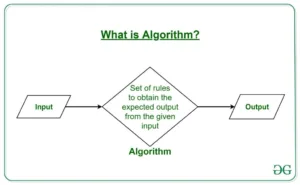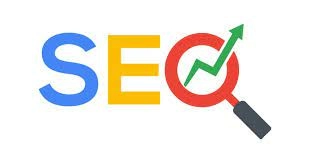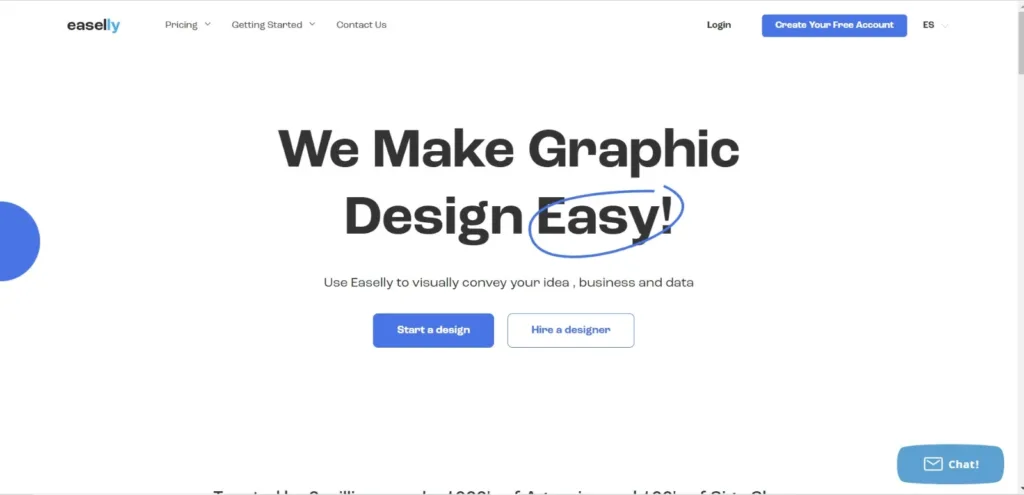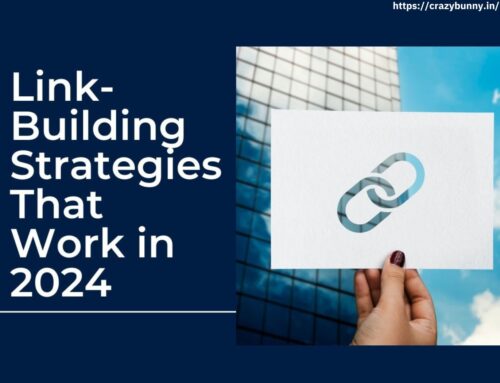Know Everything about Search Engine.

Search engines are online tools that allow users to search and retrieve information from the vast universe of the internet.
Search engines have become an integral part of our daily lives, serving as gateways to immense knowledge and resources that would otherwise be difficult to access.
Here, we will dive deep into the evolution and impact of search engines. We will explore their historical overview, understand how they work, discuss the fundamentals of SEO, examine their impact on businesses, address the challenges and ethical considerations they present, explore future trends and innovations, and conclude with final thoughts on the future of search engines.
✔️ Historical Overview

Search engines have come a long way since their humble beginnings in the early days of the internet. The first search engine, Archie, was developed in 1990, followed by the likes of ✔️ Gopher, ✔️ Veronica, and ✔️ Jughead. These early search engines relied on manual indexing and limited keyword-based searching.
The landmark moment in search engine history came with the introduction of WebCrawler in 1994, which revolutionized search engine technology by introducing automated web crawling and indexing. This breakthrough paved the way for advanced search engines, such as ✔️ AltaVista, ✔️ Excite, and ✔️ Lycos.
The evolution of search engines took a giant leap forward with the arrival of ✔️ Google in 1998. Google’s PageRank algorithm revolutionized search by using backlinks as a key ranking factor. This innovation led to the birth of modern-day algorithms, which continuously evolve to provide users with the most relevant and high-quality search results.
Key Players in the Search Engine Market
1️⃣ Google: Dominance, Innovations, and Algorithm Updates:

Google dominates the search engine market, holding a staggering market share of over 90%. The company’s relentless pursuit of innovation has led to the introduction of numerous groundbreaking features like ✔️ Google Maps, ✔️ Google Images, and ✔️ Google News. ✔️ Google’s algorithm updates, such as ✔️ Panda, ✔️ Penguin, and ✔️ RankBrain, have significantly impacted search engine optimization (SEO) practices.
2️⃣ Bing Features and Market Positioning:

Bing, owned by Microsoft, is the second-largest2️⃣ search engine globally, but its market share pales in comparison to Google’s. Bing touts unique features like visual search, video previews, and integration with Microsoft services. Despite its smaller market share, Bing remains a viable alternative to Google.
Yahoo, Baidu, Yandex, and Other Regional Search Engines While Google and Bing dominate the western market, regional search engines like Yahoo in Japan, Baidu in China, and Yandex in Russia cater to the specific needs and preferences of their respective regions. These regional players employ their algorithms and features to provide tailored search experiences.
❓ How Search Engines Work❓
1️⃣ Crawling and Indexing:

2️⃣ Explaining the Process:

Search engines employ automated bots, known as web crawlers or spiders, to browse the web and collect information about websites. These crawlers follow hyperlinks, gather data, and store it in massive databases called indexes. The crawling and indexing process helps search engines understand the content and structure of web pages.
3️⃣ Algorithms:

Search engine algorithms are complex mathematical formulas that determine the relevance and ranking of web pages in response to search queries. These algorithms consider various factors, including keywords, backlinks, user behavior, and website authority, to deliver the most relevant search results.
Search Engine Result Pages (SERPs) and User Experience: Search engine result pages (SERPs) are the visual representations of search results that users see after submitting a query. SERPs have evolved to include rich snippets, knowledge graphs, and various other features aimed at enhancing user experience and providing instant answers to queries.
✔️ SEO Fundamentals

1️⃣ On-Page SEO: Best Practices and Optimization Techniques: On-page SEO involves optimizing various elements within a website to improve its visibility and relevance to search engines. This includes optimizing meta tags, headings, content, URLs, and internal linking structures. Keyword research and content creation based on user intent are also crucial aspects of on-page SEO.
2️⃣ Off-Page SEO: Importance of Backlinks and Authority: Off-page SEO focuses on building a website’s authority and reputation by acquiring backlinks from other websites. Backlinks act as votes of confidence, indicating that the linked website is trustworthy and relevant. Off-page SEO also involves social media marketing, influencer outreach, and online reputation management.
3️⃣ Technical SEO: Site Structure, Speed, and Accessibility: Technical SEO deals with the optimization of a website’s infrastructure and technical elements to improve its crawling and indexing efficiency. This includes improving site speed, optimizing site structure and URL hierarchy, implementing mobile-friendly design, employing schema markup, and ensuring accessibility for all users.
Impact of Search Engines on Businesses

✔️ Importance of Ranking: Organic vs. Paid Search Results: Search engine rankings severely impact a business’s online visibility and, consequently, its success. Organic search results, achieved through effective SEO strategies, can drive long-term and sustainable traffic. Paid search results, on the other hand, provide targeted advertising opportunities through platforms like Google Ads.
✔️ SEO Strategies for Small Businesses vs. Large Corporations: Small businesses often face budget constraints and fierce competition in organic search rankings. Their SEO strategies may focus on local SEO, niche targeting, and long-tail keywords. Large corporations, with substantial resources at their disposal, can invest in comprehensive SEO campaigns, including content marketing, influencer collaborations, and enterprise-level technical optimizations.
Case Studies and Success Stories:
1️⃣ Honda doubles traffic and reaches 30 million people

Honda Motor Co. wanted to promote their new Civic hatchback and Accord models to South American audiences. The problem? They were competing for keywords with their dealership partners.
On top of that, Honda just wasn’t reaching their target demographic with their existing content.
Strategies:
New and improved keyword targets – We needed to get Honda and its dealers on the same page. So, we looked at the digital marketing goals for all parties and created new keyword targets for each to follow.
Audience research – Honda had a target demographic, but SEO campaigns just weren’t reaching them. We sat down to discuss the brand’s unique selling points and linked them to their customers’ needs via tailored SEO content and keyword research.
Results:
✔️ 30% decrease in CPC (cost per conversion)
✔️ 40% increase in dealer inquiries
✔️ 200% increase in traffic
2️⃣Career Group Companies boosts job applications with keyword revamp

Imagine you’re an employer with a ton of job listings, and you aren’t receiving any applications. Career Group Companies, a staffing agency, faced this problem. The culprit? Less-than-stellar SEO was hiding their listings from prospective candidates.
We got to work with tried-and-true SEO tactics to improve the brand’s connection with their audience, drive more traffic, and improve application volume.
Strategies:
Keyword portfolio expansion – We needed to understand why people looking for certain jobs weren’t landing on Career Group Companies’ listings. The answer was a few adjustments to their keyword portfolio, including long-tail variations and keyword phrases that included specific job titles and industries.
Data-driven strategy – Our proprietary tech, ConversionIQ™, helps us decrypt all the data to reveal the whole picture of your SEO and content marketing campaigns. We used our platform to gathersophisticated data across multiple channels and identify qualified and unqualified leads to inform a greater SEO strategy.
New content assets – Career Group Companies wanted to highlight diversity, equity, and inclusion (DEI) efforts and channel company-wide goals in their content. Naturally, we created new content assets to accommodate these goals and optimized existing content as well.
Results:
✔️ 43% increase in job listing page views from organic traffic
✔️ 71% increase in entrances from organic searches directly to job listing pages
✔️ Significant growth in the candidate pipeline
3️⃣ Easly hits the SEO ground running with 70 new pieces of optimized content

Easly is a Canada-based platform that provides capital advances on SR&ED grants to innovative new brands.
The company was new to the digital marketing world and came to HawkSEM with a brand-new website. It was our job to get it off the SEO ground with relevant content and authority to appeal to their audiences.
Strategies:
New content to the max – We had to start from scratch, and 70 new pieces of content did the trick. Of course, we had to ensure the information was flawless and accurate to capture niche audiences for this brand. And we wrote for every potential customer in the funnel, from curious onlookers to conversion-ripe audiences.
Domain authority – Easly was still fresh to Google’s eyes. They didn’t have enough external or internallinks to channel credibility and thought leadership. We focused on creating linkable content that naturally brought backlinks from other reputable industry players.
Technical tidbits – New websites always have a few snags. We enhanced site speed and adjusted some web elements to improve the mobile experience.
Results:
✔️ 2,500% increase in referring domains
✔️ 40+ featured snippet results on Google
✔️ 1,500% increase in the brand’s keyword portfolio
Future Trends and Innovations

✔️ Voice Search and Conversational AI: Voice search is rapidly gaining popularity, thanks to advancements in natural language processing and voice recognition technologies. Conversational AI, powered by virtual assistants like Siri, Alexa, and Google Assistant, is revolutionizing how users interact with search engines.
✔️ Mobile-First Indexing and Responsive Design: With the increasing dominance of mobile devices, search engines are prioritizing mobile-first indexing and encouraging website owners to adopt responsive design principles. Mobile-friendly websites not only provide better user experiences but also receive preferential treatment in search engine rankings.
✔️ The Role of Artificial Intelligence in Search: Artificial intelligence (AI) is playing an increasingly significant role in search engine technologies. Machine learning algorithms, neural networks, and deep learning models are being employed to improve search relevance, personalization, and overall user experience.
Conclusion
In this article, we explored the evolution and impact of search engines. We discussed their historical overview, understanding of how they work, the fundamentals of SEO, their impact on businesses, the challenges and ethical considerations they present, future trends, and innovations.
Final Thoughts on the Future of Search Engines: As search engines continue to evolve, it is crucial for businesses and users to stay updated with the latest trends and adapt to the evolving dynamics. While search engines have undoubtedly brought tremendous benefits to the digital landscape, addressing the challenges they pose and ensuring a fair and unbiased search experience will be key to shaping their future.






